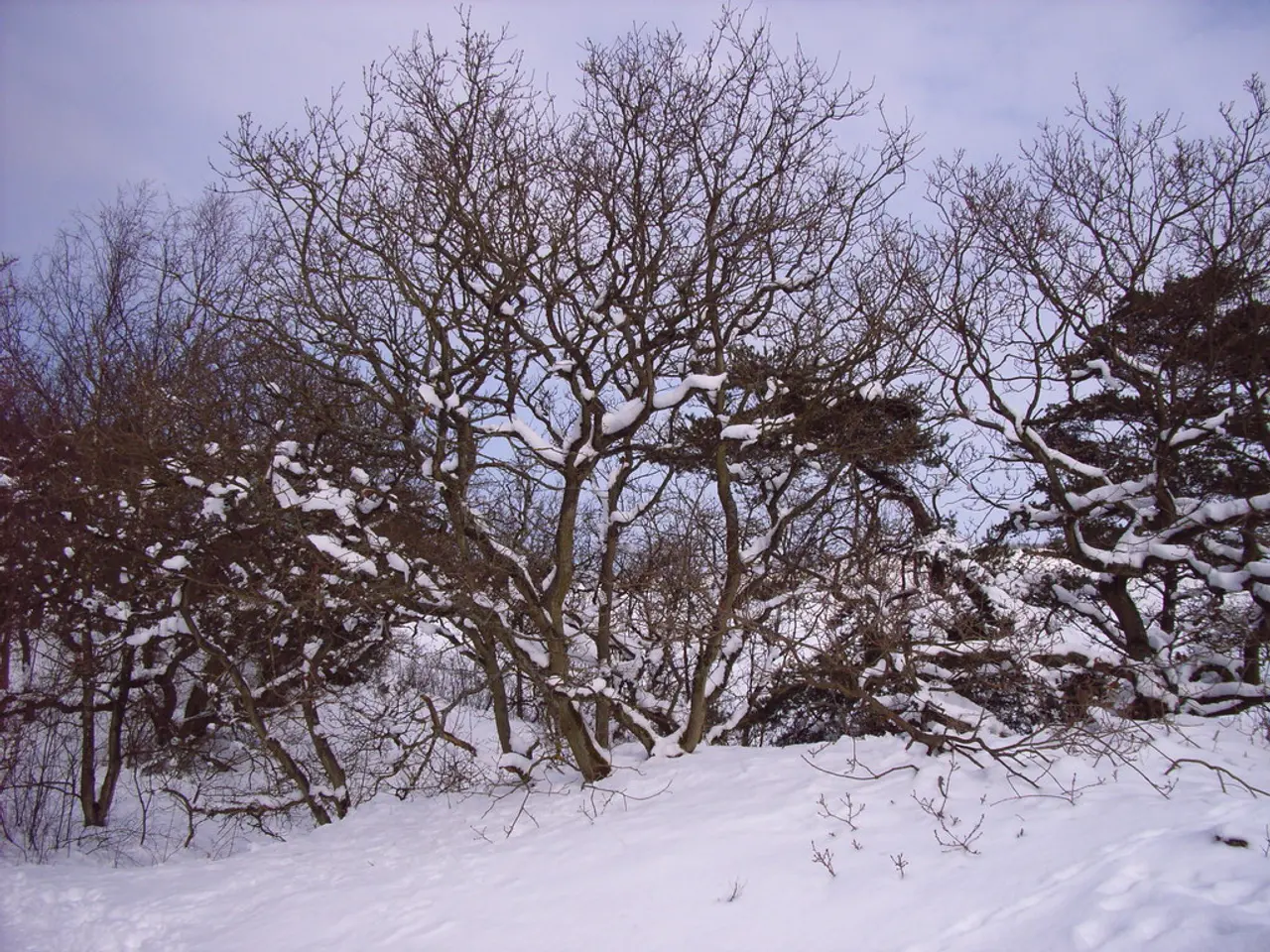Planting Seeds in Winter: Benefits and Drawbacks
Winter is not just a dormant period for gardens. It can also be an ideal time for sowing seeds and growing various plants, a practice known as winter sowing. This method has its advantages and disadvantages, making it a fascinating option for gardeners.
One of the key benefits of winter sowing is the reduced water evaporation. With less water loss due to evaporation, plants started from seed during winter require less frequent watering. Typically, watering is only necessary once or twice a week, or every two weeks, depending on the specific conditions.
Another advantage of winter sowing is the lower risk of weed infestation. Weeds are less likely to crop up during the winter season, making it easier to maintain a clean and orderly garden.
Transplanting established plants is also feasible during winter due to the root-friendly climate. Transplanted plants have fewer chances to dry out from intense heat during winter, increasing their chances of survival.
However, winter sowing also comes with its challenges. For instance, the risk of fungal disease is higher during the winter season due to the high humidity. Fungal infections can be deadly for newly sprouted seedlings, emphasising the importance of regular checks to avoid the spread of fungal disease.
Moreover, winter weather is more predictable compared to spring weather, providing a head start for plant growth before the weather warms up. This can be particularly beneficial for crops that require a longer growing period. However, slow plant development can occur for certain crops due to the cold weather.
To ensure successful winter sowing, gardeners need to have the necessary tools for sowing seeds and protecting crops from the winter cold. Protection from frost is essential, and this can be achieved using cloches, landscape fabric, and mulch.
It's worth noting that information about the advantages and disadvantages of winter sowing from 2022 was not found in the provided search results. Therefore, no direct sources related to winter sowing advantages or disadvantages from 2022 were identified.
Lastly, fewer pests are a benefit of winter sowing due to delayed insect development cycles and hibernating rodents. This means gardeners can focus more on cultivating their plants without worrying too much about pest infestations.
In conclusion, winter sowing offers a unique opportunity for gardeners to grow various plants during the winter season. By understanding the benefits and challenges, gardeners can make informed decisions about whether to embrace this method for their gardens.




